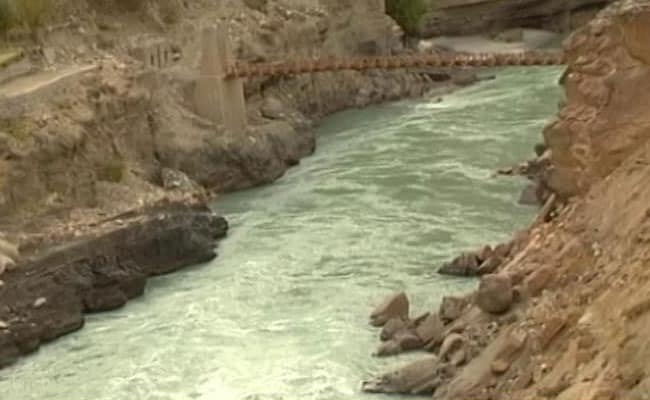NEW DELHI – Indian Prime Minister Narendra Modi on Monday summoned a meeting of the top officials and reviewed the provisions of the Indus Water Treaty with Pakistan.
According to NDTV report, PM Modi along with government officials evaluated the pros and cons of the treaty signed in 1960.
“The decision to review the treaty with Pakistan comes following the Uri attack in Occupied Kashmir in which 18 Indian soldiers killed”, the report added.
Related – Enough of the daydreaming Indians! Five reasons why India cannot scrap Indus Water Treaty
Sources say a final political call will be taken by PM Modi after discussions in the cabinet committee on security in next few days.
However, on Monday, there was no decision taken in the meeting and Modi will hold legal consultations over the treaty.
In the past, disagreements between the two countries have been settled within the legal framework provided the within the treaty. The World Bank’s role in the Indus Water Treaty is limited and strictly procedural.
NDTV’s 10 facts about the issue:
- National Security Adviser Ajit Doval, Foreign Secretary S Jaishankar, Water Resources Secretary Shashi Shekhar and senior officials of the Prime Minister’s Office were in the meeting.
- India has been debating the pros and cons of action on the 1960 water treaty that has survived two full-scale wars between the two countries, as a strong response to the September 18 attack in Jammu and Kashmir’s Uri, in which 18 soldiers were killed by alleged terrorists of the Pakistan-based Jaish-e-Mohammed.
- Officials say an assessment of the Indus treaty is bound to factor in China, where the river Indus originates. China also holds the controls of the river Brahmaputra.
- Unlike India and Pakistan, China has not signed any international water sharing agreement. Should China decide to divert the Indus, India could lose as much as 36 percent of river water.
- China also has the option of stopping the flow of Brahmaputra river water into India. The Brahmaputra starts as the Yarlung Zangbo in China and flows down into the Bay of Bengal, feeding millions in India and Bangladesh on the way. China is building 11 mega dams on the Brahmaputra and is in a position to hurt India’s interests.
- Experts are also divided over the merits of reneging on an international water sharing agreement. If India withdraws from an international pact, it’s a violation of a legal treaty, which will invite international condemnation.
- The Indus Waters Treaty was signed between India’s first Prime Minister Jawaharlal Nehru and Pakistan’s president General Ayub Khan after World Bank brokered negotiations that lasted almost a decade.
- In the agreement, control over the three eastern rivers – the Beas, Ravi and Sutlej – was given to India and the three western rivers – the Indus, Chenab and Jhelum – went to Pakistan, unrestricted.
- India can use only 20 percent of the water of the Indus, which flows through it first, for irrigation, transport and power generation. If India were to cut off supply to Pakistan, it could cause major crises in that country as a majority of its areas are dependent on Indus water.
- But stopping the flow of Indus into Pakistan would cause floods in Jammu and Kashmir and Punjab.














